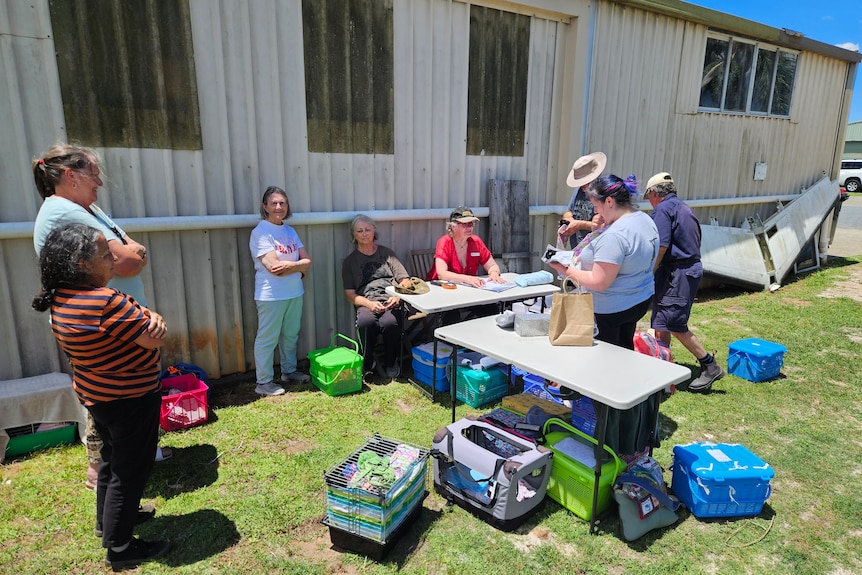A Queensland wildlife group says it was forced to fly 28 flying fox orphans more than 500 kilometres for emergency care after being inundated with a record number of motherless pups in recent weeks.
Key points:
- Volunteers believe food shortages could be the reason for record numbers of orphaned flying foxes
- There are concerns the bat species faces worsening conditions
- A protection group on the Mid North Coast will raise the pups
Bat Conservation and Rescue Queensland bundled the tiny mammals into crates in a light aircraft bound for wildlife volunteers in Port Macquarie, on the New South Wales Mid North Coast.
For Australian Wildlife Needing Aid (FAWNA) president Meredith Ryan said the group was happy to take in the orphans.
“Queensland put out a call for help and FAWNA rallied to that call for help,” she said.
Bat Conservation and Rescue Queensland representative Rebecca Appleton touched down with the precious cargo on Thursday.
She said it was a relief to transport the “eight baskets full of babies” to the nine volunteers in Port Macquarie.
“It was really nice to get to the other end and see them go to their new mums and dads, and know that they will be safe and loved,” she said.
Ms Appleton said she had been making up 100 bottles a day for the 20 pups in her care as volunteers struggled with an influx of flying fox pups in the Brisbane area.
“We broke our record for the most calls in a day a few weeks ago, and it’s been at that level ever since,” she said.
She said she didn’t want to have to stop taking in animals because the bats would be euthanased if they had nowhere to go.
Food shortages
Ms Appleton said it was common to see an increase of orphaned babies coming into care at this time of year, which was flying fox breeding season.
But she said many of the pups that had come into her care this year were different — they were under-weight and premature, with wildlife volunteers guessing food shortages could be the cause.
“From what we could tell, it looked as if their mothers were unable to produce enough milk to feed them,” she said.
Ms Appleton said natural disasters and land clearing contributed to food shortages for flying foxes, which fed on blossoms and nectar.
“The food shortages are only going to get worse because we are looking at drought,” she said.
“They’re already struggling to find food, so any loss is a big loss.”
Return ticket north
In Port Macquarie, Ms Ryan said the volunteer “mum and dads” would have their work cut out for them.
She said the pups required daily sun exposure, cleansing and weigh-ins, and were wrapped in blankets to replicate the security of their mother’s wings.
“They start off on five feeds a day until they are about four weeks old, then they are changed to four milk feeds a day, gradually reducing as they age,” Ms Ryan said.
“It’s basically a full-time job.”
Ms Ryan said the volunteers would look to release the pups into the local flying fox population in May.
She said they wouldn’t need a plane to get home, saying the animals should naturally migrate north to Queensland in winter.
“We just wish these little guys all the best and we will do our best to be a part of helping them perpetuating their very important species,” Ms Ryan said.
